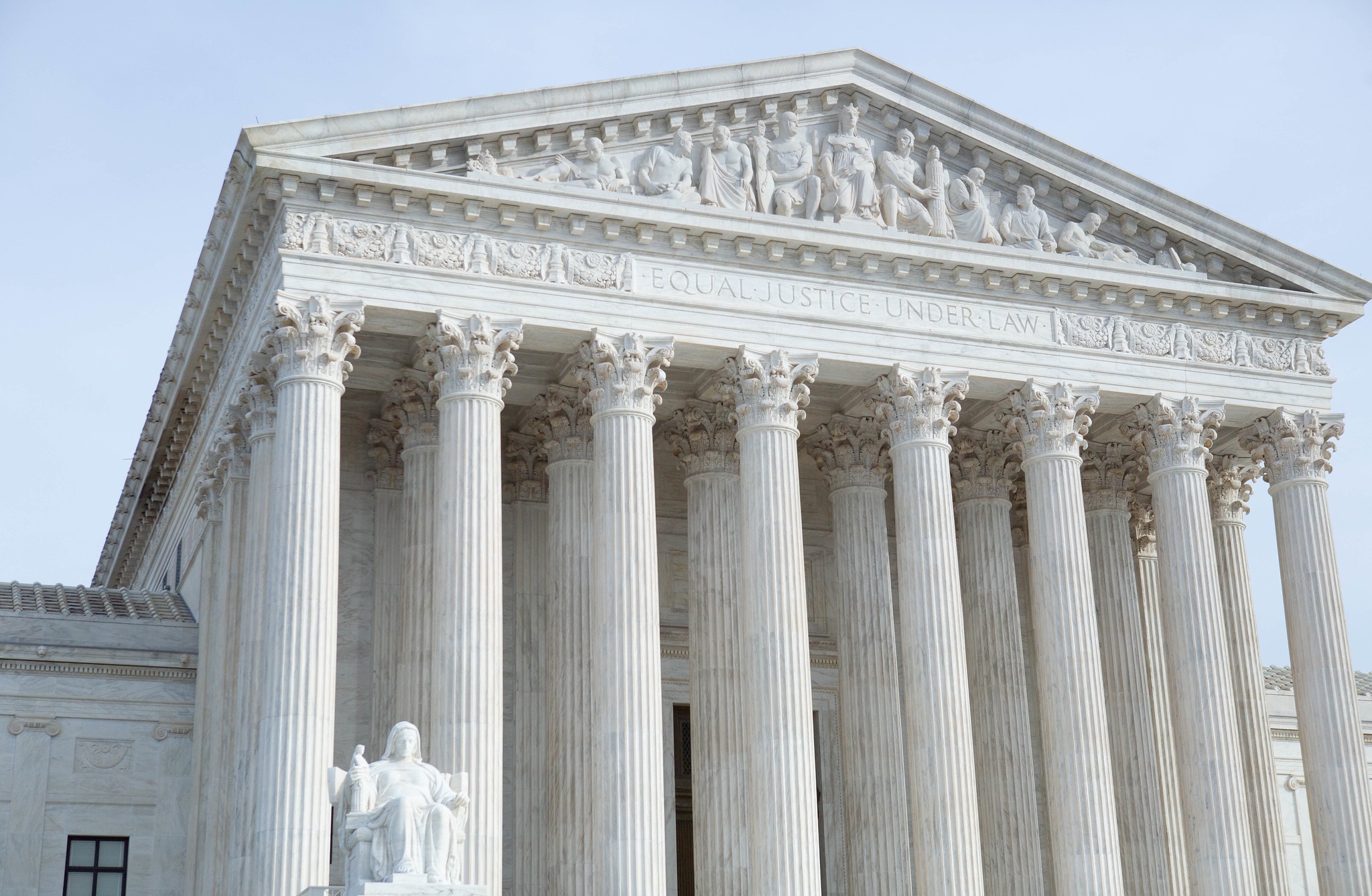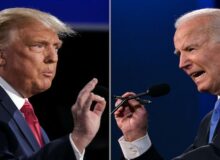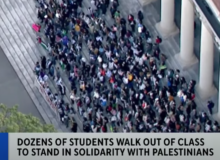by
The Supreme Court on February 28 granted a motion by Special Counsel Jack Smith to treat former President Donald Trump’s request for a stay of a ruling from the D.C. Circuit Court of Appeals pending an en banc hearing as a petition for a writ of certiorari in the case of whether Trump can be prosecuted for what Trump says was the exercise of his official duties as President before he left office January 20, 2021. The Supreme Court on February 28 granted a motion by Special Counsel Jack Smith to treat former President Donald Trump’s request for a stay of a ruling from the D.C. Circuit Court of Appeals pending an en banc hearing as a petition for a writ of certiorari in the case of whether Trump can be prosecuted for what Trump says was the exercise of his official duties as President before he left office January 20, 2021.’
Now, there will be no en banc hearing, and the case will proceed to the Supreme Court on an expedited basis, per the Court’s grant, with all briefs due by April 15 and oral arguments set for April 22: “The case will be set for oral argument during the week of April 22, 2024. Petitioner’s brief on the merits and any amicus curiae briefs in support or in support of neither party are to be filed on or before Tuesday, March 19, 2024. Respondent’s brief on the merits and any amicus curiae briefs in support are to be filed on or before Monday, April 8, 2024. The reply brief, if any, is to be filed on or before 5 p.m., Monday, April 15, 2024.”
The case will determine to what extent presidents can be prosecuted for executing their Article II executive powers under the Constitution, answering the question: “Whether and if so, to what extent does a former President enjoy presidential immunity from criminal prosecution for conduct alleged to involve official acts during his tenure in office.”
In Trump’s initial brief asking for the stay—the Court, in granting certiorari, rendered the stay moot by instructing the lower Court to hold off on proceedings until the Supreme Court renders a judgment—his lawyers outlined the conduct for which he was charged that they say fell within the President’s duties, arguing he had the power to investigate claims of election fraud in 2020 and then to communicate to the executive branch, the legislative branch and the states his position on those questions.
Now, there will be no en banc hearing, and the case will proceed to the Supreme Court on an expedited basis, per the Court’s grant, with all briefs due by April 15 and oral arguments set for April 22: “The case will be set for oral argument during the week of April 22, 2024. Petitioner’s brief on the merits and any amicus curiae briefs in support or in support of neither party are to be filed on or before Tuesday, March 19, 2024. Respondent’s brief on the merits and any amicus curiae briefs in support are to be filed on or before Monday, April 8, 2024. The reply brief, if any, is to be filed on or before 5 p.m., Monday, April 15, 2024.”
The case will determine to what extent presidents can be prosecuted for executing their Article II executive powers under the Constitution, answering the question: “Whether and if so, to what extent does a former President enjoy presidential immunity from criminal prosecution for conduct alleged to involve official acts during his tenure in office.”
In Trump’s initial brief asking for the stay—the Court, in granting certiorari, rendered the stay moot by instructing the lower Court to hold off on proceedings until the Supreme Court renders a judgment—his lawyers outlined the conduct for which he was charged that they say fell within the President’s duties, arguing he had the power to investigate claims of election fraud in 2020 and then to communicate to the executive branch, the legislative branch and the states his position on those questions.
Fifth, then alternate slates of electors were convened for the Vice President and Congress to consider on January 6, 2021: “Other individuals organized slates of alternate electors from seven States to ensure that the Vice President would be authorized to exercise his official duties in the manner urged by President Trump… According to the indictment, these alternate slates of electors were designed to validate the Vice President’s authority to conduct his official duties as President Trump urged.”
Here, Trump argues that those were all things he had the power to do as President. Another element, though, that the Court will invariably need to grapple with is that even if Trump had not been the President and was a presidential candidate who had lost the election, he still would have had a First Amendment right to challenge the outcome of the election in courts, to the Justice Department, to Congress and to the states.
Trump also asked the Court to consider the First Amendment implications of the criminal trial in the 2024 election, in which Trump is running for the Republican nomination and is easily winning so far, having swept Iowa, New Hampshire, Nevada, South Carolina, and now Michigan. He’s won every contest so far.
Trump argued the trial itself would harm his First Amendment rights going forward: “The D.C. Circuit’s extraordinary decision to return the mandate to the district court to proceed to trial imposes another grave species of irreparable injury—the threat to the First Amendment rights of President Trump, his supporters and volunteers, and all American voters, who are entitled to hear from the leading candidate for President at the height of the Presidential campaign. The Special Counsel seeks urgently to force President Trump into a months-long criminal trial at the height of campaign season, effectively sidelining him and preventing him from campaigning against the current President to whom the Special Counsel ultimately reports, President Biden. This would impose grave First Amendment injuries on President Trump and all American voters, whether they support him or not, and threatens to tarnish the federal courts with the appearance of partisanship.”
In 2000 and 2016, election challenges by Al Gore and Jill Stein were never considered criminal matters, even though both failed to legally prevail in courts and in Congress in bids to overturn the outcome of those elections. Unquestionably, Gore and Stein had the First Amendment right to bring those petitions to redress their perceived grievances, even if they were ultimately found to be wrong.
So, yes, the Trump case could turn on whether the President had the power in his capacity as the executive to investigate the outcome of the election for potential fraud. Still, a broader element is to consider the First Amendment freedom to raise those challenges, whether as a sitting president or the leader of the opposition party. Even if there is no presidential immunity in this case, there is still the liberty to challenge the official acts of the government.
Trump argued the trial itself would harm his First Amendment rights going forward: “The D.C. Circuit’s extraordinary decision to return the mandate to the district court to proceed to trial imposes another grave species of irreparable injury—the threat to the First Amendment rights of President Trump, his supporters and volunteers, and all American voters, who are entitled to hear from the leading candidate for President at the height of the Presidential campaign. The Special Counsel seeks urgently to force President Trump into a months-long criminal trial at the height of campaign season, effectively sidelining him and preventing him from campaigning against the current President to whom the Special Counsel ultimately reports, President Biden. This would impose grave First Amendment injuries on President Trump and all American voters, whether they support him or not, and threatens to tarnish the federal courts with the appearance of partisanship.”
In 2000 and 2016, election challenges by Al Gore and Jill Stein were never considered criminal matters, even though both failed to legally prevail in courts and in Congress in bids to overturn the outcome of those elections. Unquestionably, Gore and Stein had the First Amendment right to bring those petitions to redress their perceived grievances, even if they were ultimately found to be wrong.
So, yes, the Trump case could turn on whether the President had the power in his capacity as the executive to investigate the outcome of the election for potential fraud, but a broader element is to consider the First Amendment freedom to raise those challenges, whether as a sitting president or the leader of the opposition party. Even if there is no presidential immunity in this case, there is still the liberty to challenge the official acts of the government.
Cross-Posted with Conservarive Firing Linw






